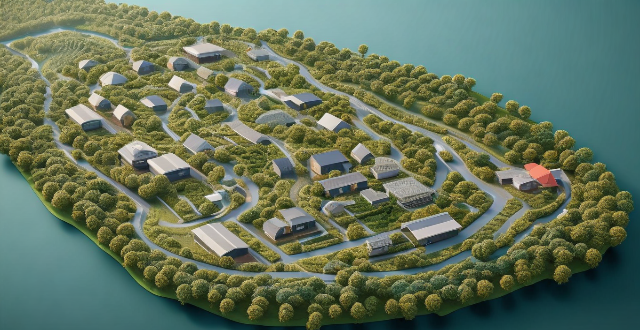Not reducing greenhouse gas emissions can have severe consequences for our planet, including climate change, ecosystem impacts, human health and well-being, economic impacts, and social and political impacts. Rising temperatures, extreme weather events, sea level rise, habitat loss, species extinction, food web disruptions, poor air quality, water scarcity, loss of livelihoods, agricultural productivity, infrastructure damage, energy demand, migration, resource wars, and political instability are all potential consequences of not taking action to reduce greenhouse gas emissions. It is crucial that we take action to mitigate these potential consequences and protect our planet for future generations.

Potential Consequences of Not Reducing Greenhouse Gas Emissions
Not reducing greenhouse gas emissions can have severe consequences for our planet, including:
Climate Change
- Rising Temperatures: Global temperatures will continue to rise, leading to more frequent and severe heatwaves.
- Extreme Weather Events: The likelihood of extreme weather events such as hurricanes, tornadoes, and floods will increase.
- Sea Level Rise: Melting ice caps and glaciers will cause sea levels to rise, leading to coastal flooding and erosion.
Ecosystem Impacts
- Habitat Loss: Rising temperatures and changing precipitation patterns will alter ecosystems, leading to habitat loss for many species.
- Species Extinction: Some species may not be able to adapt quickly enough to the changing climate, leading to extinction.
- Food Web Disruptions: Changes in ecosystems can disrupt food webs, affecting the survival of many species.
Human Health and Well-being
- Air Quality: Increased temperatures can lead to poor air quality, exacerbating respiratory illnesses like asthma.
- Water Scarcity: Droughts and reduced snowpack will lead to water scarcity in some regions.
- Loss of Livelihoods: Many people rely on natural resources for their livelihoods, which may be threatened by climate change.
Economic Impacts
- Agricultural Productivity: Changes in temperature and precipitation patterns can affect crop yields and livestock productivity.
- Infrastructure Damage: Extreme weather events can cause significant damage to infrastructure like roads, bridges, and buildings.
- Energy Demand: Higher temperatures can increase demand for energy, particularly for cooling purposes.
Social and Political Impacts
- Migration: Climate change can force people to leave their homes due to rising sea levels or lack of resources, leading to migration and potential conflicts over resources.
- Resource Wars: Competition for resources like water and arable land may increase tensions between nations.
- Political Instability: Climate change can exacerbate existing political instability, particularly in regions already affected by poverty and conflict.
It is crucial that we take action to reduce greenhouse gas emissions to mitigate these potential consequences and protect our planet for future generations.